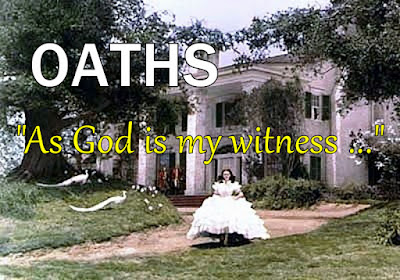WHY GOD? AND BOTH

Psalm 139:7-18
Romans 8:35. 37-39
There are three questions every Christian needs to be able to answer -- Why God? Why Christ? Why Church? -- because you never know when someone will ask you. The answers they seek aren't in a theology text. They are in our stories of our life with Christ, and it doesn't hurt to understand their stories, how they perceive God and the world, too.
"Why
God? Why should I believe in God?"
How
would you answer that question?
One
way would to be to point to the natural world. There are some
weird, wacky and breath-taking things going on. Take atoms, the
stuff you and I and the universe are made of.
On
the sub-atomic level, scientists have identified or theorized the
existence of 150 sub-atomic particles. As amazing as that is,
they can't explain how or predict why they act the way they do.
Think
about the mystery and wonder of the human body. Soren Solari,
who has a Ph.D in integrative neurology admits that while it is fun
to speculate what goes on in the brain when we think about surfing,
he and other scientists in his field can't explain it.
With
billions of atoms migrating in and out of our bodies everyday,
somehow we remain who we are.
If
you were to lay my body on a table, and separate it's components out
(organs, tissues, bones, nerves, etc), from examining them, you would
not learn why I love blueberries and dislike strawberries, or why I
enjoy martial arts movies and go weepy over Hallmark Christmas
specials. There is something unseen and undetectable that defines
who I am as a person.
Despite
how much we know, there's still a lot of mystery in the created
order, and we believe it points to God.
But
will it be convincing, or is there more behind the question?
Many
people can't believe or trust in the "and bothness" of God.
Rational thinking based on reductive reasoning which is
the lens through which we have all viewed the world since the
enlightenment insists that it's either or, but it can't be both.
Either
God is aloof up there in heaven, or God is present with some people
but not with everyone. But not “and both”. “And
both” cannot logically exist.
Yet,
it does.
Light
is both a particle and a wave. The sun is both matter and
energy. The atoms that make up church pews are mostly empty
space, and the pews are solid. We are biological organisms with
something unseen that defines our person hood, which suggests we're
spiritual beings as well.
The
Hebrew people believed that the spirit of God saturated God's
creation: the heavens, the earth, the seas, all living
creatures, and even inanimate objects. It is this ever-present,
divine energy that holds everything together. God can rule in
highest heaven and be present with everyone on earth, everywhere at
the same time.
In
awe and amazement, the writer of Psalm 139 asks:
Is
there anyplace I can go to avoid your Spirit?
to be out of your sight?
If I climb to the sky, you’re there!
If I go underground, you’re there!
If I flew on morning’s wings
to the far western horizon,
You’d find me in a minute—
you’re already there waiting!
to be out of your sight?
If I climb to the sky, you’re there!
If I go underground, you’re there!
If I flew on morning’s wings
to the far western horizon,
You’d find me in a minute—
you’re already there waiting!
Light
is both a particle and a wave. The sun is both matter and
energy. The atoms that make up church pews are mostly empty
space, and the pews are solid. We are biological organisms with
something unseen that defines our person hood, which suggests we're
spiritual beings as well.
The
Hebrew people believed that the spirit of God saturated God's
creation: the heavens, the earth, the seas, all living
creatures, and even inanimate objects. It is this ever-present,
divine energy that holds everything together. God can rule in
highest heaven and be present with everyone on earth, everywhere at
the same time.
In
awe and amazement, the writer of Psalm 139 asks:
Is
there anyplace I can go to avoid your Spirit?
to be out of your sight?
If I climb to the sky, you’re there!
If I go underground, you’re there!
If I flew on morning’s wings
to the far western horizon,
You’d find me in a minute—
you’re already there waiting!
to be out of your sight?
If I climb to the sky, you’re there!
If I go underground, you’re there!
If I flew on morning’s wings
to the far western horizon,
You’d find me in a minute—
you’re already there waiting!
Then
I said to myself, “Oh, he even sees me in the dark!
At night I’m immersed in the light!”
It’s a fact: darkness isn’t dark to you;
night and day, darkness and light, they’re all the same to you.
At night I’m immersed in the light!”
It’s a fact: darkness isn’t dark to you;
night and day, darkness and light, they’re all the same to you.
(Psalm
139:7-12, The
Message)
God's
presence with us is not dependent on our mood, how we feel, our
circumstances or even our belief. Whether we're sick, anxious,
scared or unloving and hateful, God is with us.
Romans
8:35-39 assures us that nothing can separate us from the love of God.
God never abandons us, but sometimes, when life is overly busy or
just plain overwhelming, it may be difficult to keep ourselves open
and available to God.
When
people ask us "Why should I believe in God" we can point
out the mysteries that still lie unanswered or we can quote
scripture. What these seekers want to know, though, is how God
is proven in our lives. They want to to know if God is real and worth investing their trust and their hope in. Our stories hold the answers they're looking for.
I'd
share with them about the times I have felt God by my side through
hard and difficult times as well as the miraculous, joyous times. How
even in the mundane activities of life like washing dishes, feeding
the cats or driving to work, God is present.
At
what times have you experienced the everywhere, all the time, "and
bothness" of God? What stories can you share with those who come
seeking and asking "Why God?" How do we affirm
that "The Lord is with us?"



Comments
Post a Comment